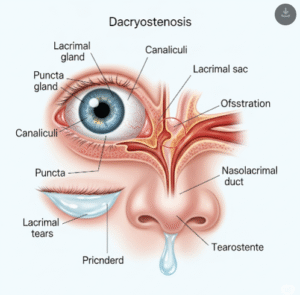Overview
Intestinal gas, commonly known as flatulence or bloating, is the accumulation of gas in the digestive tract. It is a natural byproduct of digestion, particularly when bacteria in the intestines break down certain foods. While occasional gas is normal, excessive or painful intestinal gas may indicate digestive issues or dietary sensitivities.
In Korea, digestive health is a major focus of gastroenterology clinics. Advanced diagnostic tools, personalized dietary programs, and therapeutic interventions are widely available to address excessive intestinal gas and improve overall gastrointestinal comfort.
Key Facts
- ➔ Intestinal gas consists primarily of nitrogen, oxygen, carbon dioxide, hydrogen, and methane.
- ➔ Swallowed air during eating, drinking, or talking contributes to gas in the stomach.
- ➔ Gas production in the intestines is largely caused by bacterial fermentation of undigested carbohydrates.
- ➔ Normal adults pass gas 10–20 times per day, but excessive gas may signal digestive disorders.
- ➔ Proper evaluation can distinguish harmless causes from conditions such as irritable bowel syndrome (IBS) or lactose intolerance.
What is Intestinal Gas?
Intestinal gas refers to bubbles or pockets of air in the digestive tract, which can lead to discomfort, bloating, or flatulence. Gas can originate in the stomach or intestines and may be released through belching or passage via the rectum.
- ➔ Normal intestinal gas: Part of healthy digestion, usually odorless and mild.
- ➔ Excessive gas: May cause bloating, abdominal cramping, or frequent flatulence.
- ➔ Odorous gas: Often caused by sulfur-containing foods or bacterial overgrowth.
Digestive processes, diet, and gut microbiota all influence gas production and elimination. Changes in these factors can result in noticeable symptoms.
What Symptoms Are Related To
Excessive intestinal gas is often accompanied by other digestive or systemic symptoms:
- ➔ Abdominal bloating or distention
- ➔ Abdominal pain or cramps
- ➔ Frequent burping or belching
- ➔ Flatulence with strong odor
- ➔ Nausea or indigestion
- ➔ Changes in bowel habits, including diarrhea or constipation
Recognizing related symptoms is important for distinguishing simple dietary causes from underlying gastrointestinal disorders.
What Causes / Possible Causes
Several factors contribute to the formation of intestinal gas:
- ➔ Swallowing air: Eating or drinking quickly, chewing gum, or smoking.
- ➔ Dietary factors: Beans, lentils, carbonated drinks, dairy, certain vegetables, and high-fiber foods.
- ➔ Food intolerances: Lactose intolerance, fructose malabsorption, or gluten sensitivity.
- ➔ Gut microbiota imbalance: Dysbiosis can increase gas production.
- ➔ Digestive disorders: Irritable bowel syndrome (IBS), small intestinal bacterial overgrowth (SIBO), or celiac disease.
- ➔ Medications: Antibiotics, laxatives, or other medications affecting gut bacteria.
- ➔ Constipation: Slower intestinal transit increases fermentation and gas accumulation.
Understanding the underlying cause is essential for effective management and relief of symptoms.
When Should I See My Doctor
Medical evaluation is recommended if intestinal gas is accompanied by:
- ➔ Severe abdominal pain or cramping
- ➔ Unexplained weight loss
- ➔ Blood in stool or black, tarry stools
- ➔ Persistent diarrhea or constipation
- ➔ Signs of gastrointestinal infection or inflammation
- ➔ Gas accompanied by fever, vomiting, or fatigue
Prompt consultation helps rule out serious gastrointestinal conditions and ensures proper treatment.
Care and Treatment
Management of intestinal gas focuses on dietary adjustments, lifestyle changes, and medical interventions when necessary:
- ➔ Diet modification: Identify and limit foods that trigger excessive gas.
- ➔ Eat slowly: Reduce swallowing of air while eating or drinking.
- ➔ Probiotics: Support healthy gut microbiota and improve digestion.
- ➔ Hydration: Adequate water intake aids digestion and prevents constipation.
- ➔ Exercise: Regular physical activity promotes intestinal motility.
- ➔ Over-the-counter remedies: Simethicone or activated charcoal can reduce bloating and gas.
- ➔ Monitor symptoms: Keeping a food and symptom diary helps identify triggers.
In most cases, lifestyle and dietary adjustments significantly reduce discomfort and improve quality of life.
Treatment Options in Korea
Korea offers advanced diagnostic and therapeutic solutions for individuals with excessive intestinal gas:
- ➔ Gastroenterology evaluation: Includes endoscopy, colonoscopy, breath tests for lactose intolerance, or SIBO testing.
- ➔ Dietary counseling: Personalized meal plans to reduce gas production and improve digestion.
- ➔ Probiotic therapy: Clinically guided supplementation to restore gut microbiota balance.
- ➔ Medication management: Prescription medications to treat IBS, infections, or inflammation.
- ➔ Minimally invasive procedures: Rarely needed, but available for structural gastrointestinal issues.
- ➔ Holistic programs: Integrating lifestyle, stress management, and digestive health strategies.
Leading hospitals such as Seoul National University Hospital, Asan Medical Center, and Samsung Medical Center offer comprehensive care, including nutrition counseling and advanced gastroenterology services.
In Summary: Intestinal gas is a common symptom of digestive processes, but excessive or painful gas may indicate dietary issues, intolerances, or gastrointestinal disorders. Early identification, lifestyle modifications, and professional care in Korea can relieve discomfort, improve digestive health, and prevent complications.
- ➔ Key Takeaway: Occasional gas is normal, but persistent or painful gas should be evaluated.
- ➔ Action Point: Seek gastroenterology consultation if symptoms interfere with daily life or are accompanied by warning signs.













